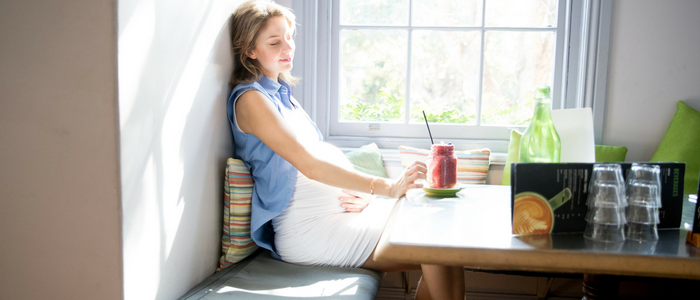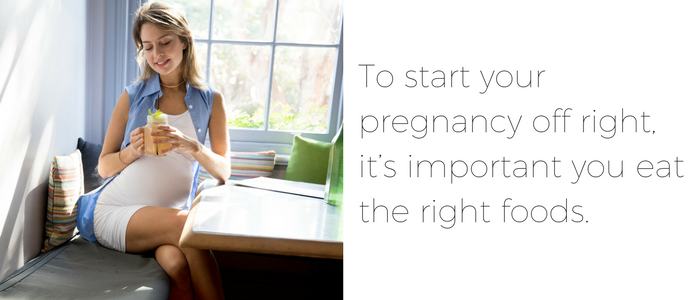
You’ve heard the saying, “you are what you eat”, and giving your baby a pure start to life follows this same line of thought. To start your pregnancy off right, it’s important you eat the right foods.
Making dietary changes when you’re still in the trying-to-conceive stage will pave the way for an easy pregnancy. If pregnancy is a surprise, a pregnancy diet makeover that focuses on eating foods from each of the five food groups - fruits, vegetables, grains, lean proteins and dairy products - will quickly put you on track.
But pregnancy diet isn’t just about what you should eat. It’s also about what you shouldn’t eat. Some foods carry a higher risk of harmful bacteria like listeria or salmonella that could make you and your baby ill, and some foods contain toxins that could lead to defects in your unborn baby. It’s important to make note of these foods and understand why they are best avoided.
1. Unpasteurised Milk
Getting adequate amounts of dairy is important during pregnancy, but if you have milk, drink only pasteurised or UHT (ultra-heat treated) milk. If unpasteurised is all you’ve got, boil it first to play it safe.
Pregnant women who drink unpasteurised milk may face a fivefold increase in risk of the parasite infection toxoplasmosis and infection with listeria. Toxoplasmosis and listeria are linked with high rates of stillbirths, preterm delivery, as well as sepsis and meningitis in newborns.
For this reason, soft ice-creams and soft goat’s cheese that is made from unpasteurised milk should also be avoided.
2. Certain Fish
Fish is an important source of nutrition during pregnancy, containing high levels of protein and essential omega-3 fatty acids. But pregnant women should take care to avoid fish with high levels of mercury.
Some species of fish, such as tilefish, swordfish, shark and king mackerel contain organic mercury at concentrations sufficient to cause adverse developmental effects to your unborn baby. In high quantities, this fish can be toxic to the nervous system.
3. Liver Products
Liver is generally considered a healthy food that’s rich in vitamins, minerals and proteins, but liver contains high amounts of preformed vitamin A which can be harmful to your baby during the early months of pregnancy. A portion of cow’s liver can contain up to three times the maximum daily amount of preformed vitamin A, as well as up to 30,000 IU of retinol, also thought to be harmful to your baby. Liver products like pate have the added risk of infection such as listeria, which can lead to miscarriages or stillbirths in pregnancy.
It’s a good idea to avoid daily doses of cod liver oil, too.
4. Caffeine
Infants poorly metabolise caffeine until around three months of age, therefore high levels of caffeine can increase the risk of miscarriage, low birth weight and experiencing a difficult birth. Naturally found in lots of foods, caffeine is best avoided when possible. Low levels of caffeine (less than 300mg a day) won’t carry much risk, but as a common ingredient in coffee, tea, chocolate, soft drinks and some medicines, it might surprise you how much caffeine you actually consume.
5. Raw Fish
Raw fish, including sushi, sashimi, ceviche and carpaccio should be avoided when pregnant due to food poisoning risk. The Centre for Disease Control and The Centre for Food and Drug Administration suggest seafood should be eaten only when cooked to 145 degrees fahrenheit. Cooking fish to this temperature destroys any parasites and pathogens that might be harmful to you or your unborn baby.

6. Soft Cheeses
Mould-ripened cheese like brie, camembert, Danish blue, gorgonzola and chevre (a type of goats cheese), should be avoided when pregnant as they can contain listeria which even in small doses can lead to miscarriage, stillbirth, or severe illness in a baby. You can still eat hard cheeses like cheddar, parmesan and stilton, as the lower water count means less risk of bacteria growing. All other cheeses, such as cottage cheese, mozzarella, halloumi, paneer and cream cheese should be made with pasteurised milk.
7. Deli Meats
Cold cuts of meat are today sprayed with a food additive that helps prevent listeria from forming in packaging, but this process is missed with deli meats. Deli meats may be purchased fresher than cold cut packaged meats, but they are still often exposed to bacteria. In fact, ready-to-eat deli meats are the food most associated with L.monocytogenes, which can grow at refrigerator temperatures unlike salmonella and E.coli. If you decide to eat deli meat regardless of this, you should reheat your deli meats until steaming, which will kill any bacteria that has formed.
8. Raw or Partially Cooked Eggs
Foods that contain raw or partially cooked eggs, such as homemade mayonnaise, tiramisu and mousse, carry the risk of salmonella poisoning. Salmonella contamination of eggs and eggshells is a public health concern worldwide, with salmonella being one of the most prevalent causes of foodborne illness. For pregnant women, salmonella can cause vomiting, diarrhea, fever, stomach cramps and nausea, however in some cases salmonella can escape the intestine to enter the bloodstream. Bloodstream infection can be fatal to both you and your unborn baby, and can cause long-term complications.
9. Pre-packaged or Pre-prepared Salads
Because of the extra handling involved in pre-preparing salads, packaged salads or salads purchased from a salad bar, they carry a higher risk of contamination than a salad you make from scratch yourself. Seed sprouts, such as alfalfa, mung bean and snow pea sprouts, also carry a higher risk of contamination and food poisoning bacteria, as bacteria thrives in the conditions used to grow the sprouts. If you store pre-washed salad leaves in a warm room or leave them until after their use-by date, bacteria can quickly multiply. Play it safe and make your own salads to serve immediately.
10. Stuffing
Everyone loves a good roast with a side of stuffing, but unless it’s cooked separately and eaten hot, stuffing is best avoided when pregnant. The inside of a turkey or chicken doesn’t get hot enough to kill harmful bacteria, so cook your stuffing in a separate baking dish to 165 degrees fahrenheit. Otherwise the juices of the meat, which may contain salmonella, get soaked up in the stuffing and can make you and your baby sick. If you’re worried your stuffing won’t be tasty without meat juices, you can always stuff your turkey or chicken once the bird is fully cooked and collect the juices as it rests.
Food choices to keep both you and your baby healthy
Your pregnancy is your pregnancy, and while we want you to make it your own unique journey, there are certain things you should be aware of and take into consideration. One of these things is the food you eat, and the foods you choose not to eat. After all, giving your baby the purest start to life begins way before you give birth.
